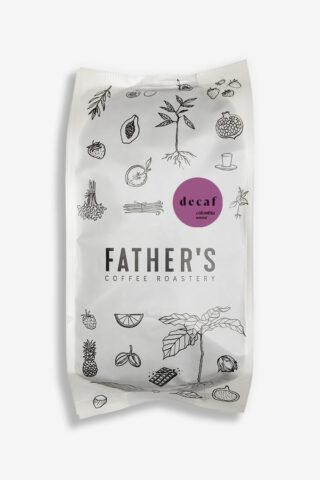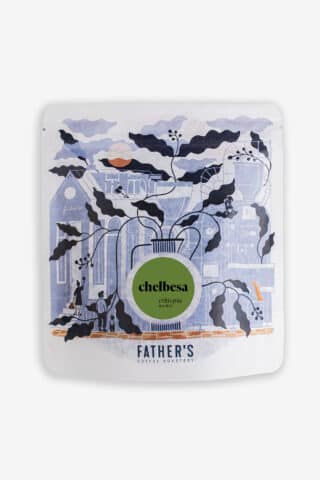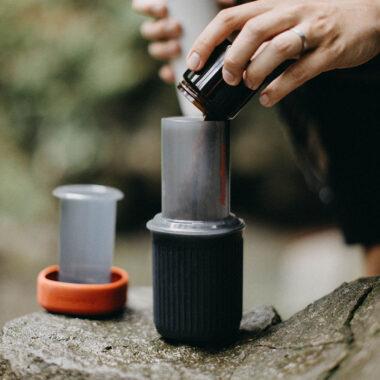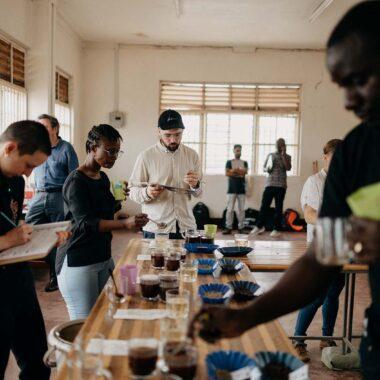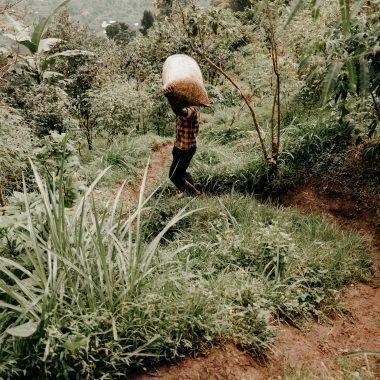We think that, as with normal coffee, you can’t throw all the decaf coffee into the same bag.
The topic of decaffeinated coffee is quite controversial. Some people can’t go without decaf; others claim that it cannot even be considered coffee.
What are the advantages and disadvantages of decaffeinated coffee?
Caffeine has a stimulating effect on the body: it raises the heart rate and blood pressure and increases circulation. According to multiple pieces of research, it also stimulates the central nervous system, relieves pain in some types of migraines, improves mood, speeds up reactions, and supports cognitive processes.
Of course, when coffee is decaffeinated, these effects do not occur or occur on a much weaker scale.
On the other hand, caffeine can have adverse effects on the bodies of people with high blood pressure or unborn babies and can also reduce the quality of sleep or prevent sleep altogether.
This is why decaffeinated coffee is particularly popular with pregnant and breastfeeding mothers, people with high blood pressure, or coffee fans who drink coffee in high quantities for its taste and want to enjoy it several times a day or even in the evening.


Can decaffeinated coffee be good?
As a first step, it’s important to understand the differences between commodity and specialty coffee, regardless of subsequent caffeinated or decaffeinated processing.
In fact, the quality of the coffee bean is the first important ingredient that influences the taste of the final beverage.
Therefore, for decaffeinated coffee to be good, the bean from which it is made must also be good.
For us at Father’s, it is also important to know if the coffee has been grown ethically and in an environmentally friendly way, which is why we work with Falcon: an export company that oversees the growing, harvesting, and sales process.
You can read more about our collaboration HERE.
How is coffee decaffeinated?
There are several ways to get the caffeine out of coffee.
Most (especially commodity) coffee is processed by the chemical method of decaffeination, where the coffee is soaked in a solution with a solvent that gets the caffeine out of the coffee.
Fortunately, there are also two high-quality and natural methods.
Probably the best known is the so-called Swiss Water Process, which extracts the caffeine from coffee by osmosis through repeated soaking in water.
This is a very efficient process as it removes 99% of the caffeine from the coffee but uses a lot of water.
Many roasters and coffee experts prefer the second process, called sugarcane decaf. )
This process uses a natural compound called ethyl acetate, which is found in fruit and sweets, and which is produced as a by-product of sugar cane processing.
It’s slightly less efficient than the Swiss process – it strips the coffee of about 97% of its caffeine – but is popular for its better-tasting coffee and is much gentler on the amount of water used.
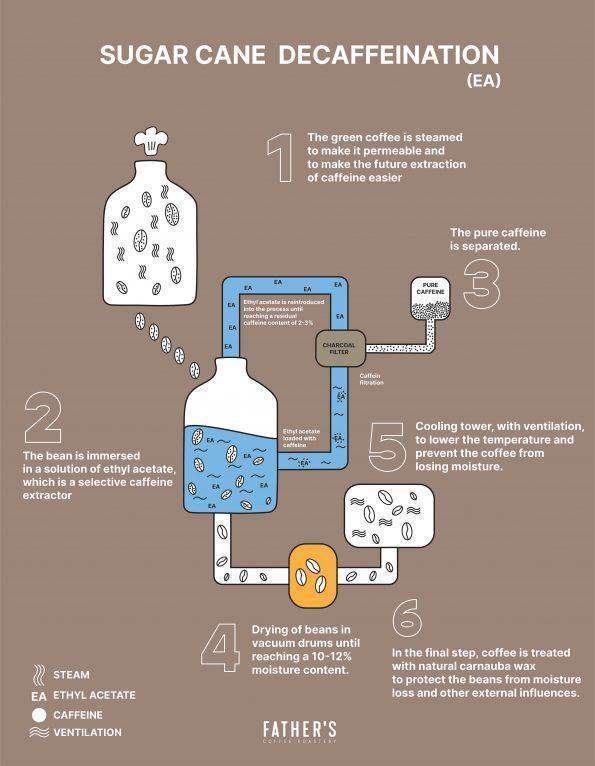

Colombia Argelia – Decaf Washed
In our offer, you will find decaffeinated coffee from Colombia processed using the sugarcane decaf method, originating from the Cauca region. It is grown by the Siruma Coffee Association, a small producer run by local women. The coffee is first processed using the classic washed method, which leaves it to ferment for a few hours. The coffee is washed and left to dry for 14 days.
Then the sugarcane process kicks in. In this case, the coffee is first steamed at low pressure to remove the skins and then moistened with hot water to swell and soften the beans. This prepares the coffee for the so-called hydrolysis of caffeine, where it is washed several times with ethyl acetate.
Once this process is complete, the coffee is stripped of any residual ethyl acetate by a stream of low-pressure steam and transferred to vacuum drums, where it is dried to 10-12 % moisture. It is then rapidly cooled using fans and, in the final step, treated with natural carnauba wax to protect the beans from moisture loss and other external influences.
The result is a coffee that you can hardly tell has been decaffeinated. It tastes like sugar-coated almonds, tangerines, and limes; we love it. We’ve roasted it for filter and espresso and hope you enjoy it too.

